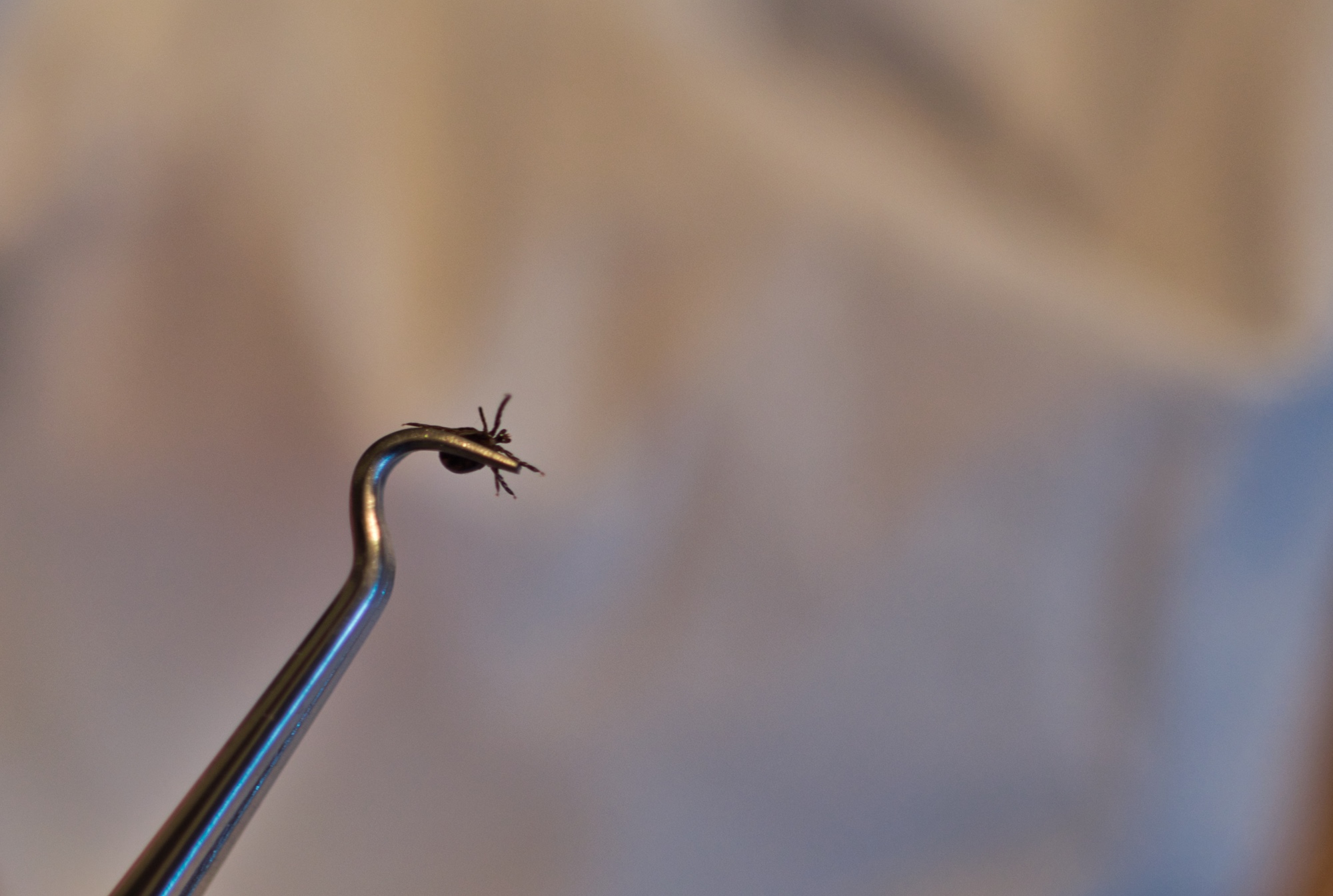Be Sure To Check For Ticks This Camping & Canoeing Season

Just a reminder to check yourself over for ticks each night when you get back to your tent. If you've been walking past long grass on a portage or out on a hike, there is a chance a tick came along for a ride when you brushed past her (only females bite, and no... they don't drop out of trees. You have to come into contact with them). Ticks love warm areas to look in your arm-pits, behind your ears, along your neck, and in along you groin area. Have a once-over of your pooch too!
Thanks to climate change our Canadian Winters don't reach the frigid temperatures they need to be to kill them off each year (quick snaps down to -30° so that they don't have time to properly hibernate). The worst ticks are the Blacklegged ticks which carry Lyme disease and can pass it along to you. Currently they are found in...
- Southern, eastern and northwestern Ontario
- Southern Quebec
- Southern Manitoba
- Southern New Brunswick and Grand Manan Island
- Parts of Nova Scotia
- Southern British Columbia
Be sure to always have a pair of tweezers with you in your daypack/backpack to pluck them out by their head. Don't try and use things like tape or a lighter in hopes they let go (common misconception that aren't effective). Removing a tick within 24-36 hours can help prevent infection (thank goodness they take a while to feed).
Keep the tick in a little container and bring it to your local health unit so that they can send it off for testing to determine if it was carrying something nasty (and build a profile of where ticks are being spotted)...
Stay safe out there!






